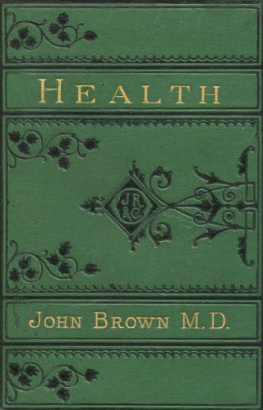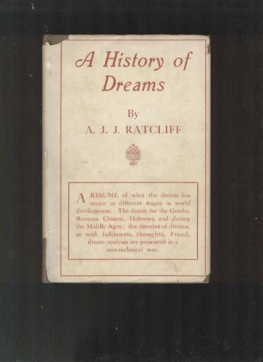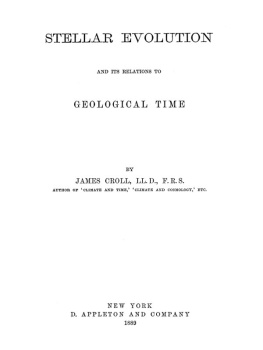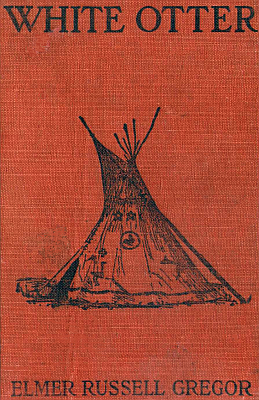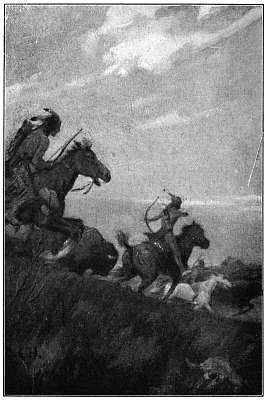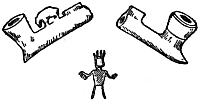"The hunt became a mad break-neck scramble across the rocky plain."
[ Page 143]
WHITE OTTER
BY
ELMER RUSSELL GREGOR
AUTHOR OF "CAMPING ON WESTERN TRAILS," "THE RED ARROW," ETC.
FRONTISPIECE BY
D. C. HUTCHISON
D. APPLETON AND COMPANY
NEW YORK LONDON
1924
By ELMER R. GREGOR
JIM MASON, BACKWOODSMAN
JIM MASON, SCOUT
Western Indian Series....
WHITE OTTER
THE WAR TRAIL
THREE SIOUX SCOUTS
Eastern Indian Series
SPOTTED DEER
RUNNING FOX
THE WHITE WOLF
Copyright, 1917, by
D. APPLETON AND COMPANY
Printed in the United States of America
CONTENTS
| CHAPTER | PAGE |
| I. | Riders of the Night |
| II. | The War Party |
| III. | Trailing the Enemy |
| IV. | A Perilous Adventure |
| V. | A Surprise |
| VI. | A Fight in the Dark |
| VII. | The Minneconjoux Camp |
| VIII. | Visitors from the North |
| IX. | The Great Buffalo Drive |
| X. | An Adventure Among the Peaks |
| XI. | A Call to War |
| XII. | A Night of Uncertainty |
| XIII. | Racing to the Rescue |
| XIV. | The Plight of the Ogalalas |
| XV. | White Otter's Bold Resolve |
| XVI. | A Baffling Trail |
| XVII. | A Peep into the Pawnee Camp |
| XVIII. | A Daring Attempt |
| XIX. | A Splendid Victory |
| XX. | The Crown of Eagle Plumes |
WHITE OTTER
CHAPTER I
RIDERS OF THE NIGHT
IT was the time of the new-grass moon. The long cold winter had finally passed, and the season of abundance was at hand. The Sioux gave thanks to the Great Mystery with song and dance. They knew that vast herds of buffaloes would soon appear from the south, and then every want would be supplied. The hunters were already making plans for the great buffalo drive which would provide the camp with meat for many days.
It was at this season that White Otter, the grandson of Wolf Robe, the famous Ogalala war chief, had planned to visit the Minneconjoux camp to see his friends, Sun Bird and his brother Little Raven. The three young warriors had shared many perilous adventures the previous year, when White Otter won fame by recovering the Red Arrow, a Sioux medicine trophy which had been stolen by the Pawnees, and Sun Bird rescued his brother from captivity. At that time the lads pledged themselves to an undying friendship, and Sun Bird and Little Raven accompanied White Otter to the Ogalala village. When they departed White Otter gave each two splendid ponies, and promised to visit them the following spring. Now the time was at hand and he was eager to go.
When Wolf Robe learned White Otter's intention he said: "It is good; the Minneconjoux are our brothers. Curly Horse, their chief, is a great man. You will see many brave warriors in that camp. Sun Bird and Little Raven are your friends. They will tell their people about you. Go and tell the Minneconjoux that Wolf Robe is thinking about them."
Two days later White Otter set out upon his journey. As he was anxious to make a good appearance before the proud people whom he planned to visit, he had arrayed himself with elaborate care. He was dressed in all the finery of a Sioux warrior. He wore soft doeskin leggings extending to his thighs, a buckskin breech-cloth, moccasins gayly decorated with dyed deer-hair, a rawhide belt from which hung his knife-sheath, his weaselskin pouch containing his fire-sticks and a small buckskin bag filled with dried meat. His bow and arrows were in a wolfskin case which was slung across his back, and at his side hung his buffalo-hide war shield. His robe was a beautifully tanned pelt of the grizzly bear. His hair was arranged in two braids which were bound with otter fur, and fastened to his scalp-lock was a tail-feather of the golden eagle, which proclaimed him a warrior. He rode his fastest war pony, a nervous little roan, and in its mane and tail he had fastened many hawk feathers, and strips of fur. Thus equipped, the lad of seventeen winters was an imposing figure. Tall and manly, he carried himself with the commanding dignity which he had inherited from his father, Standing Buffalo, and his grandfather, Wolf Robe, the stern old war chief of the Ogalalas.
As White Otter left his grandfather's lodge and rode through the center of the village the people greeted him with shouts of approval. He had won an everlasting place in their hearts, and they looked upon him with pride and affection. Most of the boys, many of the old men and some of the women followed him from the village, singing his praise and calling his name. Once he had left the camp, however, White Otter soon urged his pony into a canter, and rode away from his enthusiastic admirers.
"The Minneconjoux will see that White Otter, the grandson of the great war chief of the Ogalalas, is a man," said Yellow Horse, the medicine-man.
"Yes, he is brave like his father, Standing Buffalo, who has gone on the Long Trail," replied Wolf Robe, as he looked admiringly after his grandson.
White Otter rode away with a light heart, for he was overjoyed at the thought of rejoining his friends. He had never been to the Minneconjoux village, but he knew that it was far to the westward near the great mountains, and as Wolf Robe had carefully described certain prominent landmarks along the route he had little fear of missing his destination. The young Sioux had heard many tales relating to the courage and valor of his distant tribesmen, and he was eager to meet the famous warriors of whom he had heard. He was particularly anxious to see Curly Horse, the renowned Minneconjoux war chief, and Sun Bird's father, Rain Crow, a famous medicine-man.
At midday White Otter came to a great village of the little Underground People, the prairie dogs. He rode slowly between the small earth lodges, and saw hundreds of the eccentric little creatures sitting up to watch him. One old gray-whiskered sentinel chattered shrilly as the pony approached, and finally dove frantically into his burrow. Most of the Underground People followed his example. White Otter laughed at their fright. He stopped his pony and waited for them to reappear. When the gray nose of the cautious old patriarch finally came in sight, the young Sioux called a greeting.






